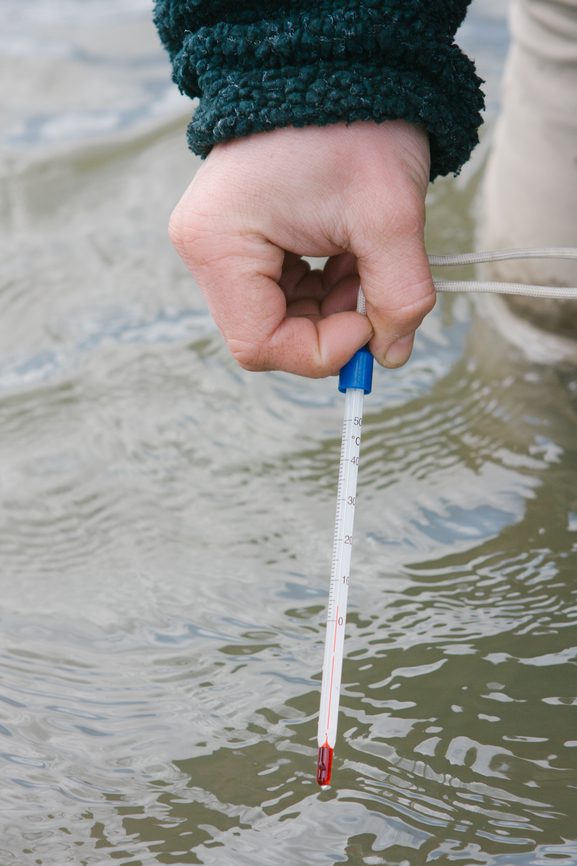Conducting ongoing checks of project health is something teams should do on a regular basis, but surprisingly few actually do. If your organization is one of those that doesn’t already carry out routine monitoring, it’s an important skill that’s worth the effort to develop. A well-informed assessment gives project managers the level of awareness they need to proactively spot potential problems, deploy solutions, and monitor the results to ensure their fix was effective in bringing the project’s progress back on track.

Why don’t teams check their project’s health more often?
There are many teams that simply don’t know how to take their project’s temperature. Others don’t understand the value provided by the resulting insight. Some project managers may not have used tools to observe and evaluate progress during past efforts. Often, team members haven’t been exposed to a project management methodology that emphasizes proactive alerting and routine monitoring of activities.
Other project managers feel they don’t have enough time to assess the health of their project. They may be worried that everyone is rushing to complete their tasks. Employees might already be losing time to issues such as fighting fires and responding to impromptu questions from stakeholders or the executive group. The problem is compounded when teams try to execute several projects simultaneously and their workloads don’t have room to support the necessary oversight activities.
Some project managers are afraid they don’t have the resources—time, funding, expertise—to address any issues that a health check might uncover. Why go looking for problems if you can’t do anything about them? For teams already struggling with a lack of support, it may seem that improved insight will just create more difficulties than it solves.
How can you take your project’s temperature?
One key to gaining insight into the health of a project is the use of stringent controls. Once the key activities have been identified across the schedule, the team will be able to monitor where delays, conflicts, or other issues could impact either task sequencing or the target completion date. Robust controls give project managers a way to maintain good visibility into not only how well the project is progressing, but also how efficiently the team is working toward its goals.
Routine progress reports are another tool project managers can leverage as they examine the health of their project at each stage in its life-cycle. Accountability at the individual level is a foundational element that ensures every person on the team is maintaining constant awareness of the tasks under their responsibility. Status updates from each team member will then provide the rest of the project’s stakeholders with the information they need to evaluate where their own activities may impact—or be impacted by—tasks in other areas.
What can you do if you discover your project is unhealthy?
The right approach to a resolution will depend on what’s gone wrong. While developing a plan to address the problems, teams should dig down to determine exactly how the project is being impacted. Where did the challenges first appear? Which tasks are affected? Using that information as a starting point, project managers can work to identify the trigger behind the issues. Are low staffing levels restricting how quickly tasks can be completed, for example? Have delivery delays for key pieces of equipment put the downstream schedule out of whack?
Using the insight they’ve gathered, project managers can then evaluate the possible contingency plans and deploy a solution that addresses the problems and returns the project to a healthy state. Subsequent health checks will show the team the effectiveness of their efforts.
Have You Taken Your Project’s Temperature?
Conducting ongoing checks of a project’s health is something teams should do on a regular basis, but surprisingly few actually do. If your organization is one of those that doesn’t already carry out routine monitoring, it’s an important skill that’s worth the effort to develop. A well-informed assessment gives project managers the level of awareness they need to proactively spot potential problems, deploy solutions, and monitor the results to ensure their fix was effective in bringing the project’s progress back on track.
What can you do if you discover your project is unhealthy?
The right approach to a resolution will depend on what’s gone wrong. While developing a plan to address the problems, teams should dig down to determine exactly how the project is being impacted. Where did the challenges first appear? Which tasks are affected? Using that information as a starting point, project managers can work to identify the trigger behind the issues. Are low staffing levels restricting how quickly tasks can be completed, for example? Have delivery delays for key pieces of equipment put the downstream schedule out of whack?
Using the insight they’ve gathered, project managers can then evaluate the possible contingency plans and deploy a solution that addresses the problems and returns the project to a healthy state. Subsequent health checks will show the team the effectiveness of their efforts.

